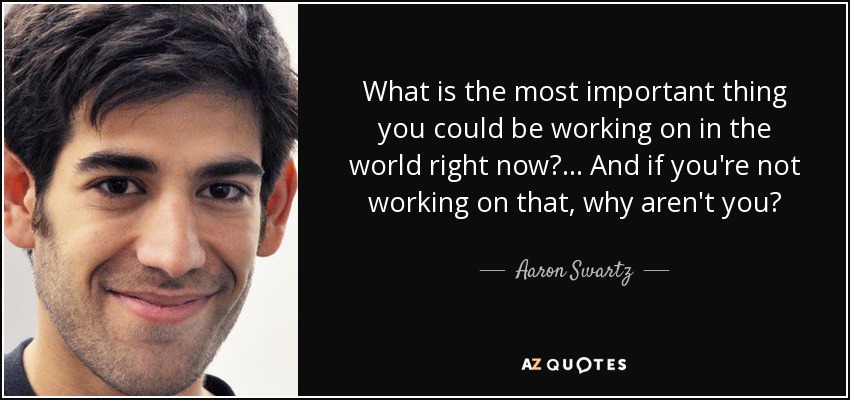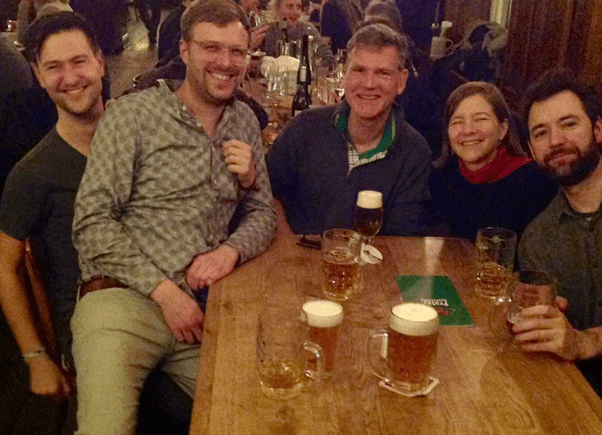Leaving ScienceOpen – Time to say goodbye
Cross posted from here.
Well, it has finally come to that time. After two years at ScienceOpen, I’m sad, but also excited, to announce that I’ll be leaving at the end of the year. Sad because I’ll be leaving an amazing team of creators, thinkers, and doers – people who I’m proud to call not just my colleagues, but also my friends. Excited though because this means that new adventures await!
An open journey
I started at ScienceOpen back in January 2016, while still writing up my PhD (I love procrastinating). I had been personally interested in what is generally now termed ‘open science’ for about 5 years prior, and working with ScienceOpen seemed to fit with my ideals, while learning more about the scholarly communication and publishing industry. You often hear people complaining that researchers don’t know enough about the publishing industry or process itself (still true), and I wanted to equip myself with some knowledge to help with this.
Back then (the old days…), ScienceOpen was primarily all about innovative, and disruptive, ways to do Open Access publishing. Since then, the company has evolved to become something entirely different, and it has certainly been an interesting journey to be part of. We now work very closely with a range of scholarly publishers, and it has been quite an experience learning how things ‘work’ from the inside. I still remain incredibly skeptical about many aspects of our scholarly publishing system (e.g., peer review), but now feel more able to challenge them effectively, and to also help find solutions.
The journey, however, has been pretty tough. Several people have directly called me and my views on open science “radical”, and have even aggressively attacked them or made personal threats (publishers and academics alike). Annoyingly, it’s rare events like this that tend to stick, rather than the overwhelming and continuous positivity generally received. Nonetheless, getting researchers to engage with either Open Science or ScienceOpen has been a grueling task, and I leave ScienceOpen with a steelier skin and a few scars as a result. I guess this is the nature of the beast – campaigning for change is never easy. There is an incredibly powerful, entrenched status quo in academia and publishing, and they do not like to be challenged. Thankfully, there is an incredible community out there trying to shift the power dynamic. Thousands of passionate people, including the OpenCon and Force11 folks, and they have always been there for support, and to help combat the darkness when it creeps up.
I feel that in no way am I a good communicator, not by a long shot, and likely never will be. Nor do I feel that all the things I think, say or do are correct. But the last two years have changed me quiet a bit, and I feel more confident, more knowledgeable, and more effective as a person. A person who just wants things to be a bit better in science – a bit fairer, more equitable, more open. It’s a process, and a personal journey that never stops!
Take homes from the experience
If I had to distill everything I’ve learned or done in the last two years into a few points about communications and community engagement, what would they be?
- Always listen first. If you want to get someone to do something, always listen to what it is they want or need first (or ask a question). How else are you supposed to find common ground to work from otherwise?
- Know when to shut up some times. Is your voice needed? By speaking out, are you stopping others from doing so? Silence can be a powerful ally.
- The whole ecosystem is defined by a unfathomable diversity of actors, the tensions between them, and gears and levers that form an incredibly complex machine. Find out where you fit in it, and what power you have to make change – you never know if you don’t try!
- Being nice gets you everywhere. Radically nice if possible, especially when it seems most difficult.
- There is no one way to deliver a message, no one magic bullet that will work. Some times you have to try different tones. Some times you will meet resistance. That is totally okay – use every experience to improve yourself and get stronger.
- Never under-estimate the power of incompetence.
- Never over-estimate the power of evidence.
- People in this ecosystem are surprisingly human. They make mistakes. They have personal interests, morals, ethics, and agendas. Don’t be surprised if someone has different views to you. Work with it.
- If you’re meeting resistance, work out what the origin of that is. There’s always a source, and when you find it, you’ll know what the solution is. Which you will never, ever discover if you begin by thinking that you have the solution already.
- Picture the future. How are the actions that you perform today going to be judged in 10 years time? Which side of history do you want to be on? Think tactically, strategically, and empathetically.
- The people who work on ‘open science’ are some of the best people I know. They are a frickin’ beautiful bunch, all of them. The reason for this, I think, is because they are principled people, and realise how open science is itself largely based on principles, such as fairness, equality, inclusivity. They realise that the current system often does not possess these principles, and want to change that – because they see it as the right thing to do. I think.
- What do you believe in? What is the thing that is most important to you? Work out what those are, and dedicate your time to them. If you already know what they are, and aren’t spending your time on them, why not?

What is ScienceOpen?
Anyway. This is still one of the most common questions I get. I like to think of ScienceOpen as a playground for researchers. Its primary function has become search and discovery. But with this, come a dazzling array of features that allow users to experiment and interact with research in any number of ways – post-publication peer review, article recommendations, author summaries, and collection formation are some of the top ones here. Every user will have a different experience depending on how they choose to engage with research and other researchers.
Vital statistics
Since joining, I’ve written 128 blog posts, excluding guest posts and interview, which I guess is kind of impressive. My favourite of these will always be the Open Science Stars series – conducting interviews with researchers from around the world to find out what Open Science means to them. This was an eye-opening experience, hearing the challenges, stories, and solutions people from all walks of life had, and helped me to personally gain a much more holistic insight into the world of Open Science. Thank you to all the Stars who participated in that series – keep on shining!
We’re also at like 4,500 followers on Facebook, and about to hit the 10k milestone on Twitter – so close!
What’s next?
Well, if you’ve read this far, it probably means you’re at least vaguely interested still for some reason. For updates, you can follow me on Twitter (note: this account is highly, over-used – follow with caution), or simply email me.
I’d like to finish by saying thank you. Thank you to the countless individuals who I’ve interacted with these last two years, all of who have helped me become a better person in some way. Thank you especially to Stephanie, Alexander, Tibor, Dan, Agata, Erzsébet, Nina, Erik, Jixin, Peter, and the rest of the amazing ScienceOpen team for letting me be part of this experiment with you all. It’s been a fun ride, and I can’t wait to see what the future holds!

I am since mid 2015 trying to retract a fraudulent study on the breeding biology of the Basra Reed Warbler in a Taylor & Francis journal (open access, see below for details), and I would like to tell the readers of this blog that there are several similarities between experiences of Jon with dealing with open access advocates and my experiences with contacting open access advocates about my efforts to retract this fraudulent study.
I have for example already received several threats and I have also experienced badmouthing about me by a high-profile researcher, and behind my back. Jon states for example “there is an incredibly powerful, entrenched status quo in academia and publishing, and they do not like to be challenged”. My experiences with several open access advocates are fully in line with this quote. To put in on other words: these open access advocates do not tolerate that they get challenged.
I have experienced that these open access advocates are willing to go out of their league to prevent to start with a scientific dialogue / debate about any of the findings of the report “Final investigation on serious allegations of fabricated and/or falsified data in Al-Sheikhly et al. (2013, 2015)” (see below for details and access). Such an acting, so ‘no response’, and ‘no response’, and ‘no response’, etc., was not part of my academic education at RUG (University of Groningen, The Netherlands). Recent experiences have revealed that such an acting of these open access advocates ( so ‘no response’ etc.) is still not part of the current day acting / behaviour of the people in my field of research (animal ecology, etc.).
The list with take homes is very valuable. I would like to add one item.
Publish articles in peer-reviewed journals about events / experiences when dealing with the above listed issues with open access advocates. I have for example recently published an article about such an event in the open access journal “Roars Transactions, a Journal on Research Policy and Evaluation” ( https://riviste.unimi.it/index.php/roars/article/view/9073 ).
Sources / backgrounds about the efforts to retract the fraudulent study on the breeding biology of the Basra Reed Warbler ( http://datazone.birdlife.org/species/factsheet/Basra-Reed-Warbler ):
http://www.tandfonline.com/doi/full/10.1080/09397140.2015.1023424
https://pubpeer.com/publications/CBDA623DED06FB48B659B631BA69E7 https://www.academia.edu/33827046/
https://www.researchgate.net/project/Retracting-fraudulent-articles-on-the-breeding-biology-of-the-Basra-Reed-Warbler-Acrocephalus-griseldis
http://www.birdforum.net/showthread.php?t=303435
https://britishbirds.co.uk/article/basrareedwarblergate/